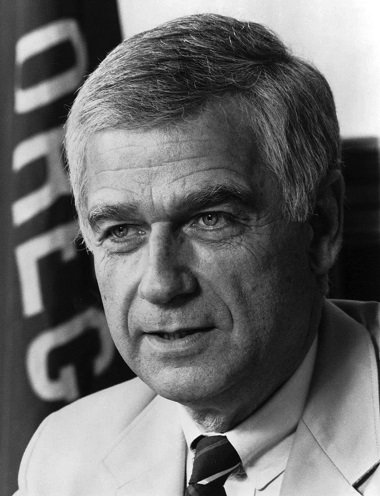 Mark Hatfield (1922–2011) received the 1995 Albert Lasker Public Service Award for his energetic leadership and enduring advocacy in support of biomedical research. During his 30 years of service as a US senator from Oregon, he worked tirelessly to increase funding for the National Institutes of Health (NIH).
Mark Hatfield (1922–2011) received the 1995 Albert Lasker Public Service Award for his energetic leadership and enduring advocacy in support of biomedical research. During his 30 years of service as a US senator from Oregon, he worked tirelessly to increase funding for the National Institutes of Health (NIH).
Senator Hatfield’s vigorous leadership was crucial in the battle against proposed cuts in the NIH budget. Affirming the central role of NIH in the mission of biomedical research, he declared that “the NIH is the cornerstone of improved quality of life in this nation.” Senator Hatfield believed that funding for medical research offered our nation the highest rate of economic return of any federal program.
During the six years of Senator Hatfield’s chairmanship of the Senate Committee on Appropriations, funding for the NIH increased by over $2.5 billion, an average of almost 10 percent per year. These funds enabled 107,000 research projects to receive NIH grants, supported an expansion of the National Institute of Neurological Disorders and Stroke, and substantially increased the allocation for research on Alzheimer’s disease.
In a 1995 article published in the Journal of the American Medical Association (JAMA), Senator Hatfield argued that the United States should embark on a disease defense buildup similar to that undertaken for military defense. The following decades would confirm the uncanny foresight of his words:
“It is ironic that we can defend our country from a foreign foe but we cannot defend our people from disease. And what if our next foreign foe comes in the form of the Ebola virus, with no known cure? . . . If we cannot protect our citizens from disease and disability, the true enemy lies within our borders.”
